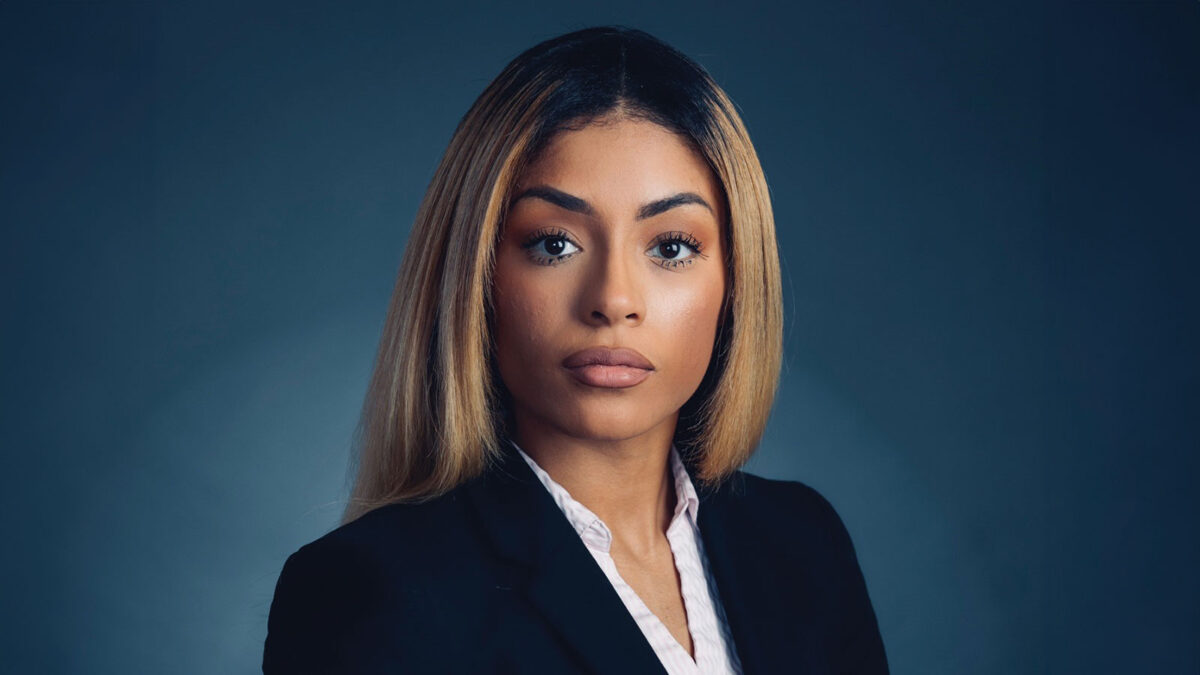
Liberatory Love
Transforming the Legal Profession
January/February 2024
Download This Article (.pdf)
In a world often defined by unequally applied rules, haphazardly focused regulations, frequently classist social norms, and violently divisive political ideology, the legal profession stands at a unique crossroads where compassion and justice can intersect to inspire a new kind of love and method of practice that’s rooted in liberation. Critical liberation theory, and by proxy, liberatory love, was first proposed by Love, DeJong, and Hughbanks in a 2007 presentation at the University of Massachusetts at Amherst.1
Practically speaking, liberatory love asks us to love ourselves, love those in our inner and outer communities, and love and care for our environment.2 My first conscious introduction to this type of liberatory love occurred when I was a 1L in law school fighting on behalf of incarcerated mothers and began to learn about the concepts of direct action, mutual aid, and bail funds. While many of my peers were nose deep in their treatises and hornbooks in an effort to receive top grades and elite summer associate placement at the conclusion of our 1L spring, I plunged headfirst into community organizing to make sense of my own calling to do liberation work. To be fair, many of my peers who focused on their grades during 1L year went on to do incredible things in the legal profession. They did exactly what one is supposed to do, and many of them were summarily rewarded for it. I, on the other hand, barely scraped by my 1L year as I put forth just enough effort to pass my courses while I prioritized fulfillment seeking liberation work. Had it not been for my atypical deviation, I likely wouldn’t even know what liberatory love is, much less be able to ask my peers in this community to develop a curiosity about it and to incorporate it into their everyday practice. As luck would have it, I get to write this letter on love to do just that.
The notion of liberatory love, which is rooted in empathy, understanding, and a commitment to social justice, holds the power to transform the way attorneys approach their work. This message explores the possibility of liberatory love in our profession, shedding light on the potential for a more compassionate and equitable legal system.
Understanding Liberatory Love
Far too often the status quo has told us that the path of least resistance is the one we must travel. That train of thought is especially evident when we look at the fact that Black women attorneys represented 2% of all attorneys in 1930, and somewhere between 2% and 7% of all attorneys in 2023.3 It’s evident when we look at our slow and contemptuous resistance to critique the bar exam, despite the outdated nature of the test and proof that suggests the test is a poor measure of competency and bears little relationship to a young lawyer’s ability to practice law.4 It’s also evident when considering calls for institutional reform based on the double-edged sword of legal precedent and how a doctrine that was meant to protect rulings from biases and ideological preferences has historically been disregarded in cases where important civil rights and liberties are being decided.5
Conceptually, liberatory love goes beyond what you and I may have traditionally thought of as various styles of attachment or languages, and instead extends its jurisdiction to encompass a commitment to dismantling oppressive systems and fostering true equity and inclusivity. At its core, liberatory love challenges the status quo, urging attorneys to move beyond the confines of tradition and to seek out ways to truly love and engage one another on a deeper human level.
Breaking Down Barriers
It’s no secret that the legal profession is one of the most elite professions in the world. Historically, law has been a territory primarily accessible to the most privileged among us and often tied to socioeconomic status, education, and connections. The manifestation of this exclusivity can be witnessed in instances of prestigious law schools favoring applicants from affluent backgrounds to the perpetuation of the old boy network, which benefits the already privileged. The path to becoming a lawyer is rife with barriers, including expensive tuition fees in addition to the stressful and demanding nature of legal education, which inherently filters out individuals without adequate financial resources or support systems. You can imagine that a single working mother like me who lived below the poverty line while in law school would face vastly different barriers than someone with parents who could devote money and resources to them in times of need. Luckily, I was able to find support and community from many attorneys who came before me and recognized a duty to help a young lawyer coming behind them. The level of love and solidarity that continues to nurture me in my baby lawyer years has enabled me to progress beyond the many barriers that lay at my feet.
The emphasis on liberatory love encourages attorneys to break down the barriers that often separate them from those they serve and those who have different backgrounds than them. Furthermore, it encourages seasoned attorneys to lift younger attorneys and law students up as they ascend in their professional careers and to “pay it forward.” This means transcending the cold, detached approach that has become synonymous with legal proceedings and associate hirings and instead fostering connections built on trust and mutual understanding. By recognizing the humanity in every client and in every law student seeking to enter the profession, we can all work to create a more inclusive and supportive legal environment.
Having the Tough Conversations
Movement lawyering has taught me many lessons. One of the greatest lessons that I’m learning while working on behalf of marginalized communities is that the people closest to the problem are best positioned to speak about solutions required to fix it. I learned that although I carry the title of guardian of justice, I also have the power to amplify the voices of those who often go unheard. Furthermore, I learned that because my profession is intrinsically tied to the concept of justice, I am uniquely positioned to effect substantial societal change through my expertise. I arrived at these lessons by having difficult conversations with clients, community members, and other professionals in the field. As president of the Sam Cary Bar Association, I worked alongside my board and my colleagues in the Asian-Pacific American Bar Association to facilitate a difficult conversation called “Affirming Affirmative Action: A Community Dialogue on the Supreme Court Decision & Next Steps.” This heavily attended discussion reinforced the notion that tough conversations can be uneasy, but that ultimately, we can all be in a better place just by having them.
Liberatory love compels us to have the tough but necessary conversations where we’re asked to confront and challenge the systemic injustices ingrained in the legal system. Attorneys, as advocates for justice, possess a unique platform to engage in difficult conversations about social injustices whether it be racism, global migration and refugee rights, economic inequality and wealth disparities, education disparities and access, issues of gender and sex discrimination, or even mass incarceration. Embracing liberatory love means actively working toward dismantling these structures and advocating for a legal system that serves all members of society equitably. Approaching these conversations with sensitivity, attorneys can create spaces that encourage open dialogue, inviting diverse viewpoints while actively listening to marginalized voices. Moreover, attorneys can use their knowledge to educate others about the legal frameworks perpetuating these injustices and advocate for systemic changes while leveraging their legal expertise. Importantly, these discussions require a commitment to introspection and continuous learning, acknowledging the complexities of social issues and the intersections of law and societal disparities.
Practicing Liberatory Love
Liberatory love challenges attorneys to move beyond the cold, detached, and archaic nature often associated with the legal system. By infusing empathy, understanding, and a commitment to justice into their practice, attorneys can contribute to a transformative shift in the legal profession. A true commitment to justice requires us to move beyond DEI initiatives that exist as mere lip service, and instead listen to the most marginalized in our communities about what they need to access care and belonging. Liberatory love has the power to redefine the way we approach the law, creating a more compassionate, equitable, and inclusive legal system that truly serves the needs of all members of society. As we strive for justice, let us not forget the profound impact that love, in its most liberatory form, can have on the heart of the legal profession. Love exists as more than a feeling—it is an action. In choosing love, we are choosing freedom and liberation, recognizing that a just world can exist outside of our imagination.
Notes
1. Love et al., “Critical Liberation Theory,” Social Justice Education (U. of Mass., Amherst, 2007). See also Love, “Developing a Liberatory Consciousness,” in Adams et al., eds., Readings for Diversity and Social Justice 470 (Routledge 2000).
2. “Critical Liberation Theory,” supra note 1.
3. National Bar Institute, “The State of Black Women in the Law 2023 DEIB Assessment Report” 10 (2023) (According to data cited in the report, Black women comprise nearly 5% of law students but less than 1% of law firm partners. The total of Black women lawyers overall is included in the ABA-reported percentage of 4.5%, which represents all Black lawyers in the profession in 2022).
4. Jones Merritt and Cornett, “Building a Better Bar: The Twelve Building Blocks of Minimum Competence” 6 (Oct. 2020), https://iaals.du.edu/sites/default/files/documents/publications/building_a_better_bar_pre_print.pdf.
5. Hennes and Dang, “The Devil We Know: Legal Precedent and the Preservation of Injustice,” 8 Pol’y Insights From the Behav. and Brain Sci. 76–83 (Mar. 2021) https://journals.sagepub.com/doi/epub/10.1177/2372732220980757.
Liberatory love challenges attorneys to move beyond the cold, detached, and archaic nature often associated with the legal system. By infusing empathy, understanding, and a commitment to justice into their practice, attorneys can contribute to a transformative shift in the legal profession.


